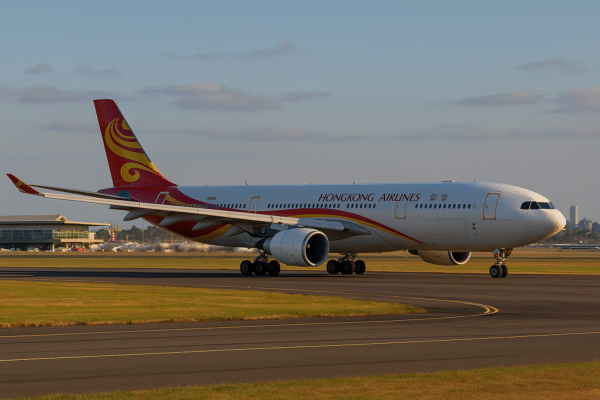Spanish low-cost airline Vueling is under increasing pressure after forcibly removing over 50 Jewish teenagers and four adults from a scheduled flight between Valencia and Paris on July 23. The group, composed of minors from a Jewish summer camp, was escorted off the aircraft by Spain’s Guardia Civil before takeoff. The incident has sparked international concern over whether religious bias influenced the airline’s decision, though Vueling insists the action was grounded strictly in safety protocols due to disruptive behavior.
The Incident: What Happened on Board
The flight, VY8166, was preparing for departure when tensions reportedly escalated. According to Vueling, multiple members of the youth group failed to comply with safety instructions issued by the cabin crew during the pre-flight demonstration. Airline representatives claimed that passengers were loud, ignored repeated requests for silence, and mishandled safety equipment on board.
One individual was reportedly taken into custody by Spanish authorities due to alleged violent behavior. The airline says the decision to offload the entire group was made in coordination with security authorities to protect passenger safety and crew protocol.
However, some witnesses and community leaders argue that the decision may have been influenced by the group’s visible religious identity and cultural expressions. Eyewitness reports suggest that the group had been singing in Hebrew prior to the incident—a common practice among organized youth tour groups.
Jewish Community Outraged, Demands Transparency
The Federation of Jewish Communities of Spain (FJCS) and the European Jewish Congress (EJC) have both expressed deep concern, demanding an official report and thorough investigation from Vueling. In a public statement, the EJC criticized the airline’s lack of clarity regarding what it labeled a “deeply troubling” incident, especially if cultural or religious expression played a role in the passengers’ removal.
“If singing in Hebrew triggered this extreme action, it raises serious questions about religious tolerance and airline procedures,” the EJC said. It further urged Vueling to educate its staff on cultural sensitivity and called for clear safeguards to prevent similar incidents.
Spanish Jewish organizations have formally requested that Vueling clarify whether the minors’ Jewish identity influenced the decision, directly or indirectly. So far, the airline has not responded to those specific concerns.
Vueling’s Official Position: Safety, Not Religion
In a formal statement, Vueling denied any form of antisemitism or religious discrimination. The airline emphasized that the decision to deplane the group was based solely on behavior that threatened the safety and order of the flight.
“Safety is our top priority. After repeated instructions were ignored, and disruptive behavior escalated despite several warnings, we made the decision to deboard the group,” the airline said.
Vueling also stated that airline staff had been trained in compliance with EU passenger rights laws and denied that any bias influenced their actions.
European Aviation Safety Context
According to the European Union Aviation Safety Agency (EASA), disruptive passenger behavior is on the rise. EASA reports that one incident involving unruly conduct occurs every three hours within the EU’s aviation network. More than 70% of these involve aggression or non-compliance with crew instructions.
Unruly passenger behaviors include ignoring seatbelt rules, verbal abuse, refusal to follow safety procedures, and misuse of emergency equipment. In some cases, such disruptions have led to emergency landings or police intervention. Airlines are legally permitted to offload passengers who compromise flight safety.
Still, critics argue that Vueling’s blanket removal of the entire group, including well-behaved minors, may have been excessive and reactionary. The optics of ejecting an entire visibly Jewish group have led to widespread concern, particularly in an era where rising antisemitism remains a global issue.
Broader Implications for Minority Travelers
This event highlights the broader challenges that religious and cultural minorities can face in international travel. Cultural behaviors—such as singing in native languages or wearing traditional attire—should not be mistaken for disruptive behavior. Advocacy groups emphasize the need for airlines to balance safety enforcement with cultural understanding.
Human rights organizations, including Amnesty International Spain, have noted an uptick in travel discrimination complaints in Europe. These include profiling at security checkpoints and alleged bias in onboard decisions. While safety remains paramount, the demand for more inclusive and culturally sensitive airline protocols is growing.
What Happens Next?
Vueling has yet to announce whether it will conduct an internal review. The Spanish Ministry of Transport has acknowledged public concern and may open an inquiry depending on the airline’s response. Meanwhile, Jewish advocacy groups across Europe are calling for broader policy reforms requiring airlines to report and justify mass passenger removals, particularly when involving minors and organized cultural groups.
Legal experts have also weighed in, suggesting that Vueling could face complaints under the EU’s Regulation (EC) No 261/2004, which protects passenger rights, especially in cases of denial of boarding without justified cause.
Conclusion: A Call for Accountability
While Vueling maintains that its crew followed aviation law and safety protocols, the public backlash underscores a deeper concern about how airlines interpret cultural behavior and enforce discipline. With the tourism sector reliant on trust and global inclusivity, airlines must not only protect passengers but also ensure they are not marginalizing minority travelers in the process.
As the investigation continues, both the airline and Spain’s aviation authorities are being closely watched—not just by Jewish organizations, but by all travelers concerned with dignity and fairness in global air travel.
For more travel news like this, keep reading Global Travel Wire






















